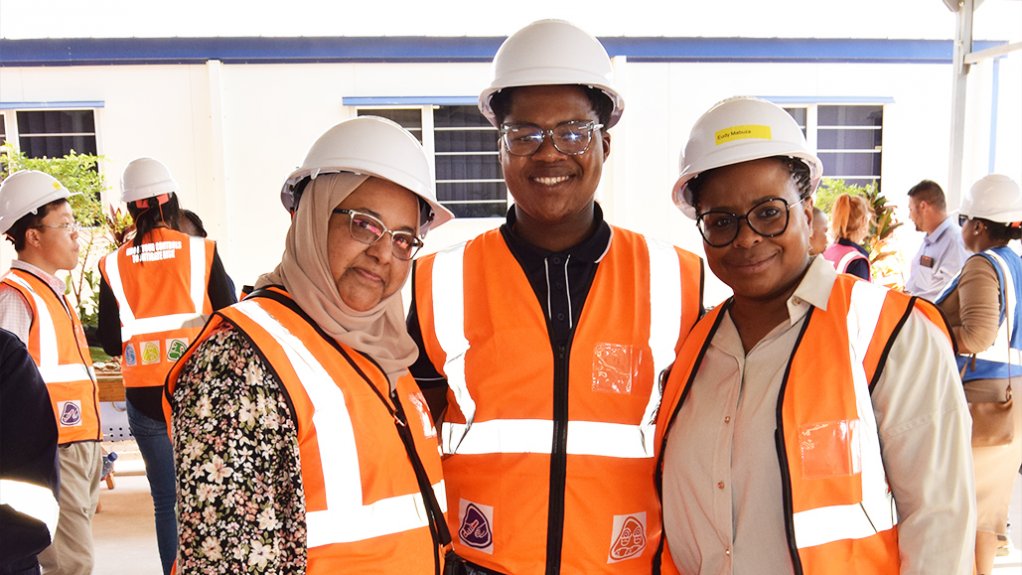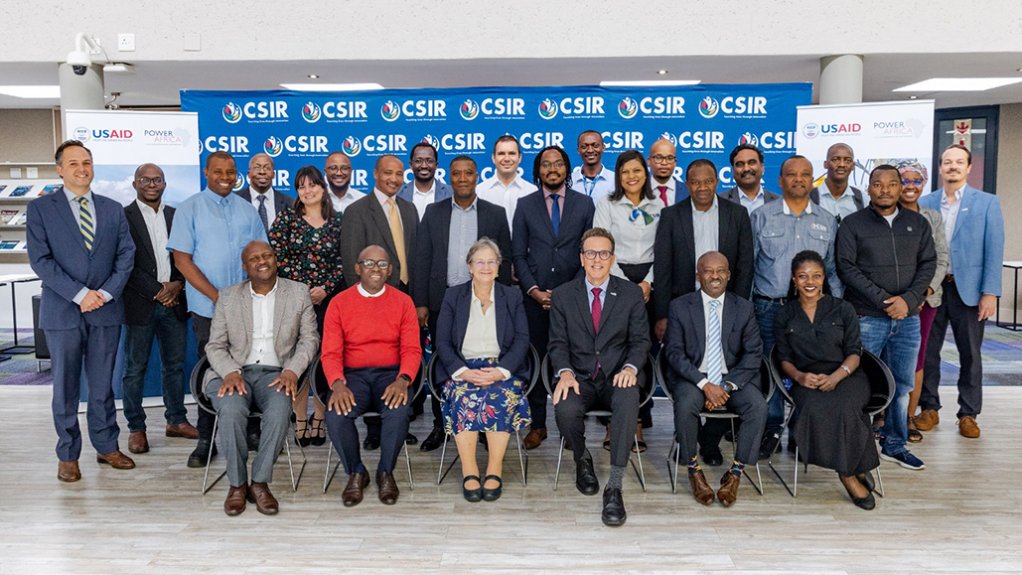JOHANNESBURG (miningweekly.com) – In a positive display of collaboration between South Africa’s public and private sectors, Anglo American Platinum’s Mogalakwena platinum group metals (PGMs) operation in Limpopo province hosted a potentially far-reaching hydrogen economy interchange with South Africa’s Department of Science and Innovation (DSI).
“Anglo American Platinum’s partnership with DSI aims to promote the development of the hydrogen economy across the African continent. The DSI are on site at Mogalakwena today to engage in dialogue focused on the development of the Hydrogen Valley,” the PGMs mining and marketing company stated in a comment on LinkedIn.
The Johannesburg Stock Exchange-listed Anglo Platinum put its huge, world-first green hydrogen-driven haulage truck through its paces to display how South Africa’s priceless minerals endowment can provide an underpin for local economic growth, job creation for young South Africans, and simultaneous protection for Mother Earth against climate change destruction.
The 14 000-job Hydrogen Valley project is targeting the completion this year of the first of three phases of a green hydrogen heavy transport reality from Mogalakena mine, through Gauteng to KwaZulu-Natal.
In an accompanying video, International Partnership for Hydrogen and Fuel Cells in the Economy (IPHE) chairperson Dr Rebecca Maserumule highlighted the opportunities for South African youth the hydrogen economy can bring.
IPHE is a 22-member inter-governmental organisation that has focused for the last 20 years on ensuring that the global community has an awareness around the hydrogen economy and the decarbonisation benefits of moving towards the hydrogen economy. South Africa currently chairs the steering committee.
DSI power director Dr Cosmas Chiteme highlighted the importance of public-private sector partnerships as the key to enable the execution of green hydrogen projects. The Hydrogen Valley project, in particular, was bringing together DSI and companies such as Anglo Platinum, Engie and other partners to demonstrate that partnership is key to the success of executing such projects.
“We believe that it is only through these collaborative partnerships that we can mobilise the required resources, as well as the skills that are required to ensure successful implementation of these projects,” Chiteme added on video.
IPHE University of Pretoria research student Nomcebo Motsa is involved in researching the transport of green hydrogen by converting it to green ammonia, a hydrogen carrier. “As the University of Pretoria, we want to train more and more people to produce hydrogen to get to low-carbon energy. We want zero emission and that is the aim of our project,” Motsa stated.
DSI’s Hydrogen South Africa is intent on exploiting South Africa’s comparative advantage in hosting 75% of global PGMs reserves by locally developing hydrogen and fuel cell technologies.
GLOBAL HYDROGEN COUNCIL
The Hydrogen Council is tracking hydrogen projects with a total value of $200-billion, with most of them planning to use solar and wind to power large electrolysers, often in remote locations. Proton exchange membrane (PEM) electrolysers and PEM cells make use of PGMs, which are overwhelmingly hosted by South Africa.
MICROGRID CENTRE OF EXCELLENCE
Mining Weekly can also report that South Africa’s Council for Scientific and Industrial Research (CSIR) and Power Africa, a US government-led initiative coordinated by the United States Agency for International Development (USAID), have teamed up to launch the Microgrid Centre of Excellence for future power systems at the CSIR to promote decentralised renewable energy solutions to address climate change and increase energy access.
The partnership is a stepping stone for the CSIR, Power Africa and USAID to identify, develop and implement solutions that capacitate energy stakeholders with microgrid and smart grid technologies. It is intended to enable the advancement of renewable energy project development, and increase access to reliable and clean energy, in line with South Africa’s Just Energy Transition (JET) goals.
A microgrid is a self-contained grid that uses renewable energy, batteries for energy storage and generators to produce power. Microgrids can either complement the national grid or work independently from it, providing communities access to more sustainable and resilient energy supplies.
These grids rely on pragmatic, scalable, and cost-effective technology that can reduce carbon emissions and align with government priorities, including the JET. Microgrids can enhance energy security, improve the reliability of supply, and stabilise the national grid. They can be implemented for commercial, industrial and campus customers, as well as in remote communities to support economic and enterprise development.
Speaking at the launch, CSIR CEO Dr Thulani Dlamini hailed this partnership as one that will advance microgrid and smart grid technologies to build future power and enhance energy capacity.
“Together with our partners, we were able to set up a real-time digital simulation laboratory to optimally support the implementation of smart grids and microgrids power generation. This facility analyses and tests microgrid technology at full power and actual load levels before implementation. This reduces the risks of deployment and helps to optimise the performance of microgrid hardware, communications and security systems. The establishment of this centre here at the CSIR will support stakeholders in seeking alternative ways to reach universal access to electricity,” said Dlamini.
The Internet of Things systems, 5G connectivity, and artificial intelligence enable connection, monitoring and management of local renewable sources to ensure a more efficient, reliable and sustainable microgrid infrastructure.
The collaboration between Power Africa, USAID, and the CSIR to establish a centre of excellence on microgrids, smart grid research and studies is scheduled to be done in two phases.
EMAIL THIS ARTICLE SAVE THIS ARTICLE ARTICLE ENQUIRY
To subscribe email subscriptions@creamermedia.co.za or click here
To advertise email advertising@creamermedia.co.za or click here















